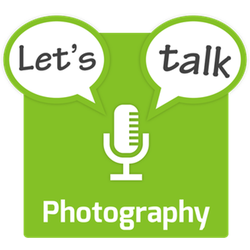- Bart Busschots (host) – @bbusschots – Flickr
This month’s show is a solo show where Bart shares his thoughts on how he thinks about ethical and moral questions around photography. This episode was inspired by episode 184 of Shutter Time with Sid & Mac with special guest Antonio Rosario.
While this podcast is free for you to enjoy, it’s not free for Bart to create. Please consider supporting the show by becoming a patron on Patreon.
Reminder – you can submit questions for future Q & A shows at http://lets-talk.ie/photoq
Outline Shownotes
- The big-picture
- Three concerns
- Is it legal? (easiest to define and least subjective)
- Is it moral? I.e., does it do less harm than good? (much more of a value judgement)
- Do you just not like it?
- Things can be illegal but ethical, or legal but unethical
- Copyright and patent laws doesn’t seem particularly moral these days
- A lot of data collection is legal, but seems exploitative and hence unethical to me (US law is far behind EU law on this front)
- IMO It’s OK to express your dislikes, but it’s not OK to get up on a moral high horse about something you can’t rationally argue is immoral
- Anything that breaks Wheaton’s Law makes me cranky
- Any time someone with a fancy-looking camera behaves in an anti-social way they give all photographers a bad name (it’s like the bad cyclists who break lights give all cyclists a bad name)
- Just because you have a right to do something doesn’t mean you have a right to do it without being criticised! I have a right to call you out for being a dick!
- Three concerns
- The moral questions that matter most to me when I’m figuring out how I feel about something:
- Is there deception going on?
- Is there exploitation going on?
- Is photoshopping OK? (Triggered by the recent controversy over the fine art photo Moonlit Dreams by Peter Lik)
- IMO, photography is an art first, and a flat recording method second, so the default assumption should not be this is straight out of the camera.
- Journalistic photography is the exception, not the rule. What makes it exceptional is the expectation that it’s a straight recording of reality.
- IMO there is even room for artistic expression within documentary photography. There are many ways of telling a story, and straight emotionless purely factual images are just one of those.
- Surely the great O. Winston Link was documenting the dying days of steam railways? But his photos are anything but straight and emotionless!
- Unless Peter Lik was misrepresenting the shot as being anything but a work of art then I have zero problem with it being a composite.
- IMO the real questions are things like does it capture the majesty of our universe?, is it beautiful? and is it well execute?

